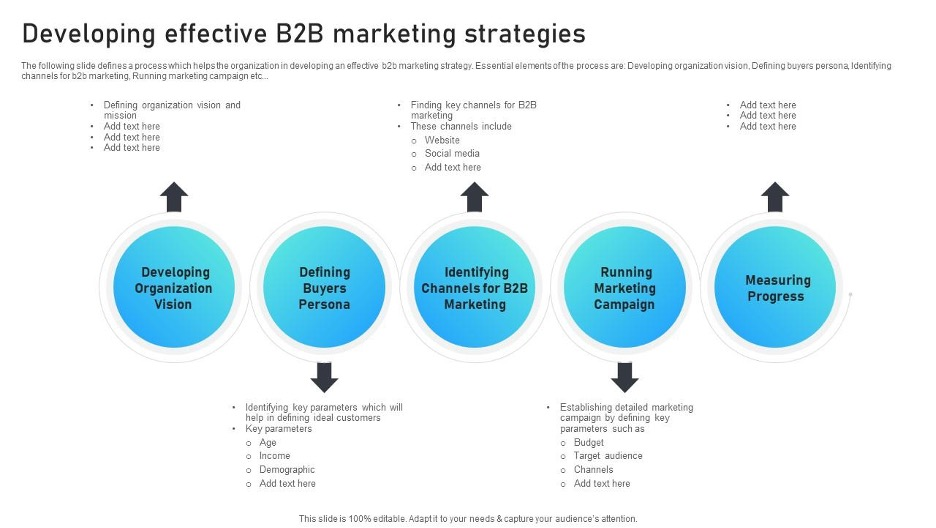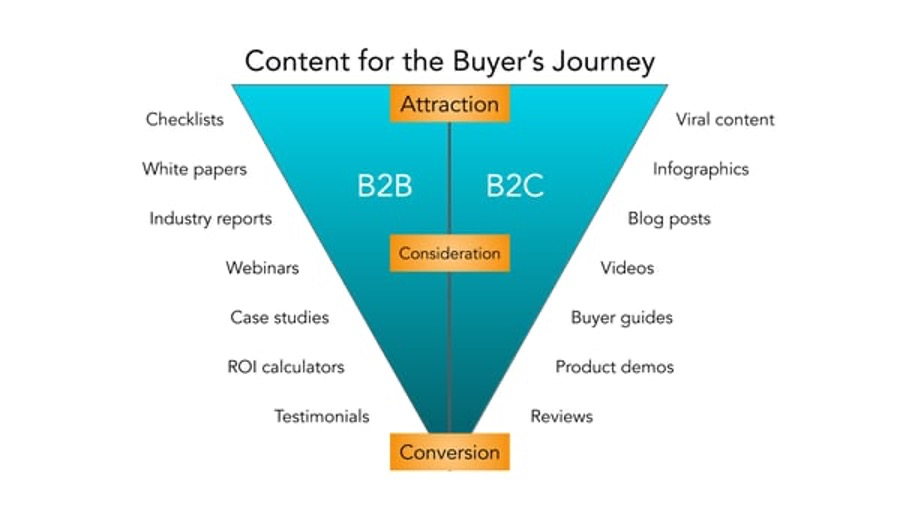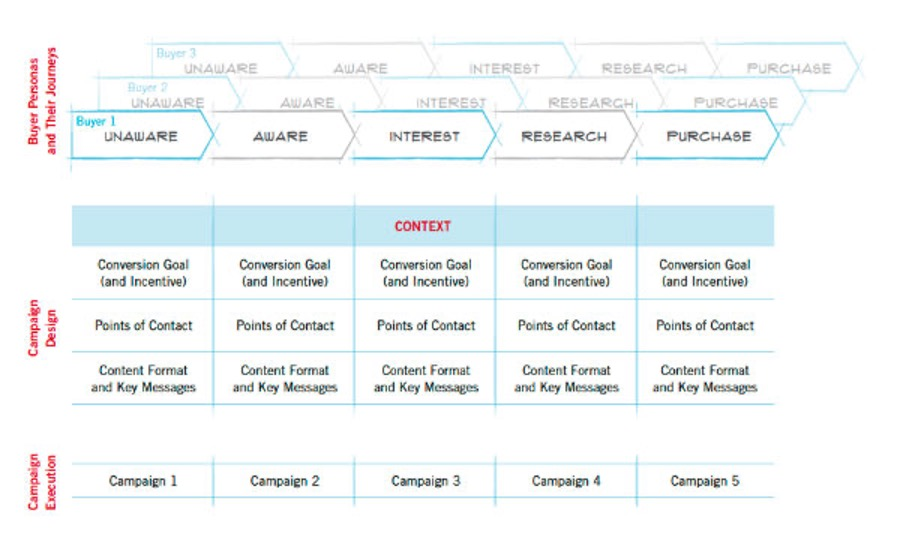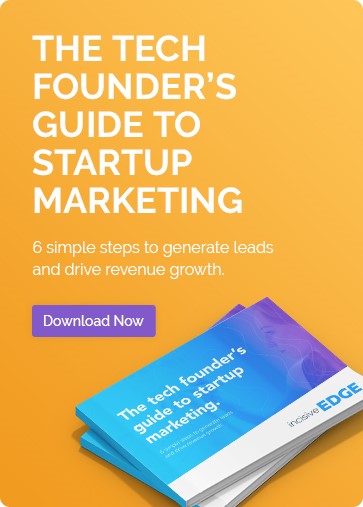In the business to business or B2B sector, organisations must constantly compete with a plethora of rivals for the attention of prospective buyers. B2B decision makers in the digital age have an internet full of options – so attracting and holding the attention of your target market is a continual battle.
Why B2B marketing strategy plans are necessary
Prospective customers desire relevant information and guidance in their buying process, which can often be provided through marketing campaigns, marketing automation, and the overall purchasing journey. This information and guidance are essential to help them address their specific challenges and solve particular problems.
These personalised interactions should be delivered through various output channels. As a result, B2B organisations looking to gain an edge over the competition may be tempted to concentrate on tactical specifics, rather than formulating a comprehensive marketing plan. This approach can lead to disjointed and unsustainable efforts.
A better approach is to take a more holistic view, and develop a detailed marketing strategy to meet you marketing goals and business objectives.

[Image source: SlideTeam]
Essential components of a successful marketing strategy
In its simplest form, a B2B marketing plan should address the following key questions for the organisation:
- Where are we now?
- Where are we going?
- How do we get there?
Answering these questions and putting them down into a formalised marketing strategy document will require input from a variety of stakeholders, including your finance department, marketing, sales, operations, product or service development, and design/creative. New market research as well as analysis and insight from previous marketing activities should also inform the development of new marketing strategies.
Check out the following articles to learn more about B2B marketing:
- How do I Start a B2B Marketing Campaign? | A 2023 Guide
- Effective B2B Marketing Campaigns: 6 Great Examples
- The 6 Best B2B Marketing Channels for B2B Companies
- How to Humanise Your B2B Marketing: A 2023 Guide
In these uncertain times, characterised by market volatility, rampant inflation, and other economic factors impacting your target market, comprehensive B2B marketing plans should encompass social media marketing, content marketing, search engine optimisation, and provisions for contingencies. Flexibility is crucial in this dynamic environment.
These are uncertain times, with market volatility, rampant inflation, and other factors influencing the economy and the behaviour of your target market. B2B marketing plans for the current climate must therefore also include a degree of flexibility and provisions for contingencies.
With this in mind, you should consider the following, when developing your B2B marketing plan.
1. Determine your own position in the market
Begin the B2B marketing strategy process with an analysis of the position of your own company, your competitors, and the prevailing market conditions. At this stage, your strategic marketing plan will benefit from a full SWOT analysis (Strengths, Weaknesses, Opportunities, and Threats) that encompasses the market environment, your competition, and your own recent marketing efforts.
Look at what’s working well, and what isn’t. Consider your brand position in relation to your rivals, and how your value proposition can better meet the expectations of your target market.
2. Identify your target audience
Create detailed buyer personas for decision makers in your target market. If you have existing customer profiles, this is a good time to refine them. Consider the goals, aspirations, and pain points of your target audience, factors that influence their purchasing decisions, and how your own product or service can improve their lives.
3. Set your marketing plan objectives and priorities
From an organisational perspective, the success or otherwise of your strategic marketing plan will depend on there being a close alignment between sales, marketing, and product/service development. Establishing alignment between the sales and marketing team is especially important if your organisation is pursuing an account based marketing (ABM) strategy.
In all cases, the strategic marketing plan may involve a trade-off between near-term marketing objectives such as new product or service launches, and longer-term priorities like customer retention and brand development.
4. Establish how your marketing strategy will give value to the target market
B2B purchasing decisions are often made by several different parties within an organisation – with the result that you may have multiple audiences for a single product or service. A successful marketing plan will position you to nurture each of these decision makers along the buyer’s journey by clearly defining the value you can provide to them at every step.
With a successful marketing plan that clearly communicates your proposition at each phase of the buyer’s journey, you can interact with prospects on their own terms through the marketing channels they habitually use to gather information, and provide the right information and resources to address their needs and pain points.
5. Identify the tactics to pursue in meeting the goals of your marketing strategy
With the knowledge that you've now gained in developing your marketing plan to this stage, your sales and marketing team should be prepared to incorporate search engines and business to business into mapping out the most appropriate content and resources for your target market at each stage of the buyer's journey.

[Image source: HubSpot Blog]
6. Diversify your marketing efforts as conditions demand
As we’ve already observed, the current economic climate is unpredictable – dictating flexibility as part of any successful B2B marketing plan. Besides the foundation elements critical to meeting your business objectives, you therefore need an agile marketing strategy with second- and third-tier marketing plans in place that allow you to easily pivot when necessary.
For example, you may provide options for both paid and organic content. There’s some justification for this, as LinkedIn researchers have observed that when followers in a target market are exposed to both organic and paid content, they are 61% more likely to convert compared to followers who only saw paid content.
7. Monitor and measure your progress
The marketing objectives and business goals you will have set for your marketing strategy should be SMART – that is, Specific, Measurable, Attainable, Relevant, and Time-bound. This means that it should be easier for you to monitor and measure the progress of your marketing plan through quantifiable key performance indicators (KPIs).
8. Establish your marketing budgets
Before you can finalise your strategic marketing plan, you’ll need to establish a budget for it, so that you can prioritise your activities to fit the flow of available resources. With the tactical elements and relevant metrics of your marketing strategy defined, you can prioritise the tactics you will invest in first, according to the available budget.

[Image source: Content Marketing Institute]
9. Get help when you need it
As you may realise by now, there are numerous factors to consider when developing a B2B marketing strategy. Putting this marketing plan into action also calls for niche areas of expertise and dedicated tools for implementing and monitoring your marketing activities. If you lack the necessary infrastructure and/or human resources, you can partner with a specialist B2B marketing agency.
Here at Incisive Edge, developing the best marketing plan for each and every business we work with is at the heart of what we do. As an agency, we live to support our clients, raising up the founders and marketing teams we work with to build the solid strategic foundations required to accelerate your marketing.
We’ll help create the pillars on which your brand is built and evolve your brand position to carve out your own space within the competitive landscape. With a firm understanding of your buyer personas, our team of experts will create your messaging platform to speak to your target audience directly, using your own brand language and tone of voice.
We design and execute B2B marketing strategies to attract more traffic, generate better quality leads, and increase your revenue.
To find out more about how we can help with your B2B strategic marketing plan, get in touch with us.





